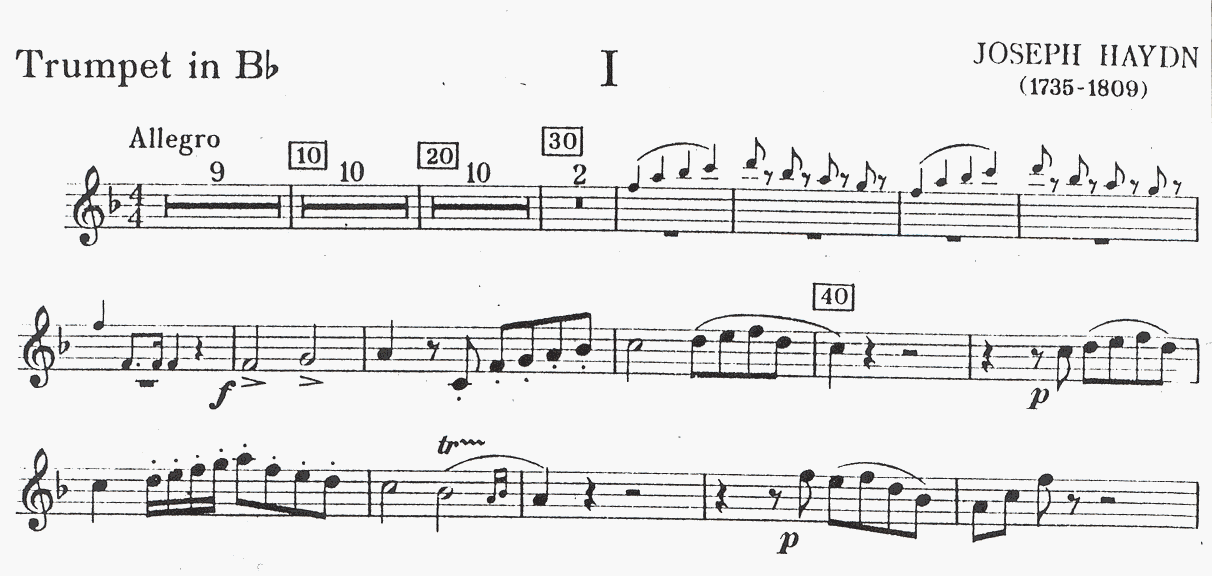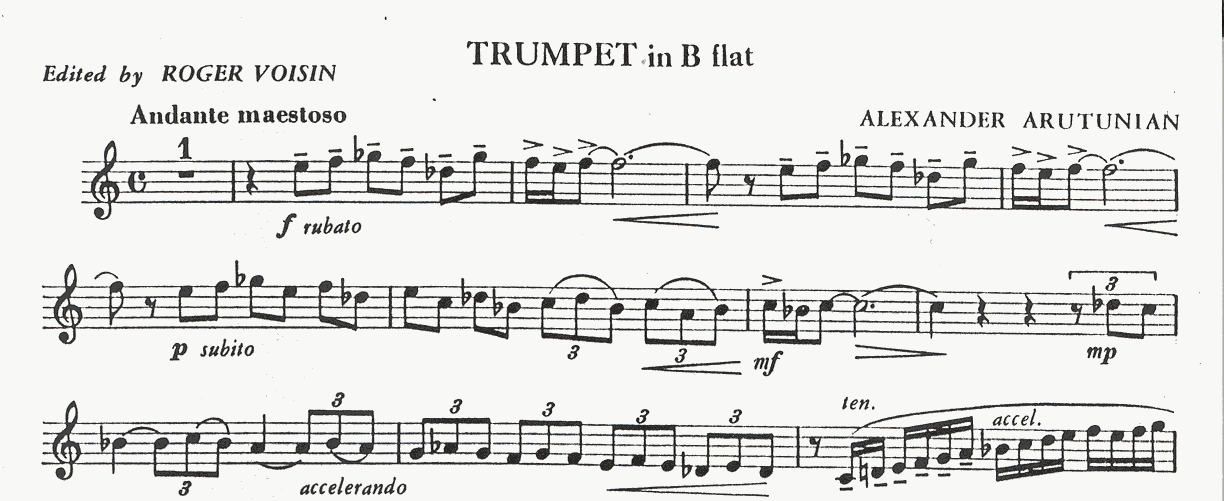


History of the Haydn and Arutiunian Trumpet Concertos



Joseph Haydn
Born 1732 in Austria
Died 1809 in Vienna
In 1749 he left school to become a freelance, playing the violin, organ and teaching. He was largely self-taught at composing, but studied works of C.P.E Bach. He became Musical Director to Count Morzin in 1759, and two years later he entered the service of the Esterhazy family, near Vienna. Haydn took the post of Kapellmeister: he was in charge of the music library and instruments and also responsible for all the musical entertainment. It was a demanding job as he had to compose in a wide range of media.
Haydn was a very original composer as he was isolated for much of his time at Esterhazy. However, with the Prince’s permission was allowed to publish a few works and his fame spread.
In the 1760’s he composed many symphonies, divertimentos, chamber music, operas and pieces for the baryton (an instrument the Prince played). Other compositions include many piano trios, 19 operas, 107 symphonies (also nicknamed ‘the father of the symphony’), 68 string quartets, 62 piano sonatas, and 15 concertos. Many of these, especially his operas, were to accommodate the talents of the Esterhazy company.
Dramatic surprise, often turned to humorous effect, is characteristic of his style, as is his fondness for folk-like melodies. His manner of turning a simple tune into complex developments was admired by his contemporaries. This is evident in his Trumpet Concerto in Eb (1796) which was Haydn’s last work for purely orchestral forces and is a truly fitting climax to more than four decades of outstanding achievement in this medium.

Musical life in Armenia has a long and distinguished history, but it is only in comparatively recent times that it has become known in the west. Among the 20th c. composers who have wedded native Armenian musical impulses to the Western Classical tradition, Aram Khatchaturian is surely the best known, but also high on the list is Alexander Arutiunian.
Alexander Arutiunian was born in 1920 in Erevan, Armenia (USSR). He is one of the best known and most highly esteemed composers in the Soviet Union. He studied composition and piano at the Komitas Conservatory in Erevan before going on for further studies in Moscow with H. Litinsky (1946-1948). He returned to Erevan when in 1954 he was appointed professor of composition at the Conservatory and artistic director of the Armenian Philharmonic Orchestra. In 1970 he was made a People’s Artist of the USSR.
Alexander Arutiunian enjoys international renown and his works are frequently played and recorded throughout the world. He has written operas, cantatas, symphonic works and chamber music. His catalogue includes many works inspired by Armenian subjects (Cantata on My Native Land, Tale of the Armenian People, From my Fatherland, and Armenian Rhapsodies), but he is best known for an impressive number of concertos, including works for piano, horn, oboe, flute, and above all his famous trumpet concerto. The latter, written in 1950, is his best-known composition abroad, and is a mainstay of every trumpet player’s repertory. Other trumpet works by Arutiunian include a Scherzo composed in 1955 and a Theme and Variations.
"Alexander Arutiunian... whose music alternates between beautiful reflections of impressionism and rough folk dances… and whose volcanic and sentimental works are irresistible..." ~ Jacques Longchampt, Paris, 1977
In May 4th, 1990, for his 70th birthday, the Armenian Chamber Orchestra,
directed by Rouben Aharonian, gave an extraordinary concert at the Gaveau
Hall in Paris, with a program devoted entirely to the composer. This was
also the occasion of the French premiere of his Violin Concerto (soloist:
Rouben Aharonian)."
